By, Dr. Hayu Prabowo, Chair of the Institute for the Breeding of the Environment and Natural Resources of the Indonesian Ulema Council (LPLH-SDA MUI)
The climate crisis has become an increasingly pressing global issue. Excessive greenhouse gas emissions from human activities have caused an increase in the earth’s temperature, triggering various negative impacts such as sea level rise, drought, floods, and loss of biodiversity.
The climate crisis has become a real threat to the survival of humans and all creatures on earth.
Global warming, changes in extreme weather patterns, and increasingly frequent natural disasters are some of the impacts we have felt. If not addressed immediately, the climate crisis will threaten the survival of future generations.l
Also Read: The Forty-Four-Days of Glory: Azerbaijan’s Struggle for Justice and Peace
In facing this great challenge, Muslims can explore the noble values of their religious teachings, especially the concept of Hablum Minal Alam, which teaches about the importance of maintaining a harmonious relationship between humans and nature.
Hablum Minal Alam is a concept in Islam that emphasizes the importance of the reciprocal relationship between humans and the universe.
Nature was created by Allah Suhanahu Wa Ta’la as a blessing for all creatures, and humans as caliphs on earth have the responsibility to protect and manage it wisely. This concept teaches that human welfare is very dependent on the balance of natural ecosystems.
Nature-based solutions (NbS) is an approach that utilizes nature to overcome various environmental and social challenges.
Also Read: Palestine Solidarity Month: A Collective Movement for Al-Aqsa and Palestine’s Freedom
This approach involves protecting, managing, and restoring natural ecosystems to increase resilience to climate change, reduce disaster risks, and improve human well-being. Some examples of nature-based solutions include:
Reforestation and Forest Conservation: Planting trees and reforesting land can help absorb carbon dioxide from the atmosphere, reduce soil erosion, and maintain water quality.
Protecting existing forests is also vital to maintaining biodiversity, regulating the water cycle, and preventing flooding.
Environmentally friendly agricultural practices such as the use of organic fertilizers, crop rotation, and integrated pest management can reduce greenhouse gas emissions, maintain soil fertility, and increase food security.
Also Read: Hassan al-Turabi: A Controversial Thinker from Sudan
Restore the function of damaged ecosystems such as rivers, peatlands and coasts. This includes rehabilitating rivers to improve water quality and prevent flooding, restoring peatlands to reduce carbon emissions and prevent fires, and restoring coastal ecosystems such as mangroves and seagrass beds to protect coasts from erosion and improve water quality.
The Hablum Minal Alam concept is in line with the principles of nature-based solutions. Islam teaches that nature is a trust from Allah Suhanahu Wa Ta’la which must be protected and managed well. In the Koran, Allah Subahanahu Wa Ta’la says:
“Damage has appeared on land and in the sea caused by the actions of human hands, so that Allah will make them feel some of (the consequences of) their actions, so that they will return (to the right path).” (QS. Ar-Rum: 41)
This verse reminds us of the negative impact of human actions that destroy nature and the importance of maintaining environmental balance. Nature-based solutions are a way to restore that balance and restore the harmonious relationship between humans and nature.
Also Read: Who Exactly is the RSF Group Shaking Sudan?
The climate crisis is a global challenge that requires real action from all of humanity.
The concept of Hablum Minal Alam in Islam provides a strong foundation for Muslims to play an active role in overcoming this crisis through nature-based solutions.
By preserving and restoring nature, we not only protect the earth and all the creatures that live on it, but also fulfill our responsibility as caliphs on earth.
Let’s use the concept of Hablum Minal Alam as a guide in facing the climate crisis. By implementing nature-based solutions, we can contribute to creating a more sustainable future for future generations. (T/RE1/P2)
Also Read: The Two-State Solution (Palestine–Israel) in Historical Perspective
Mi’raj News Agency (MINA)






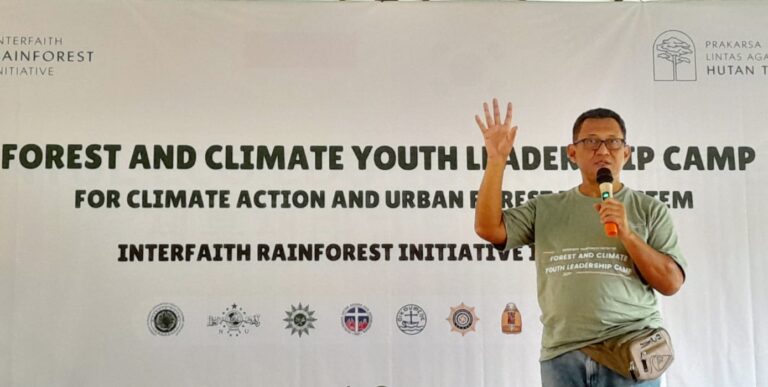


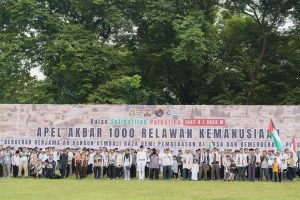
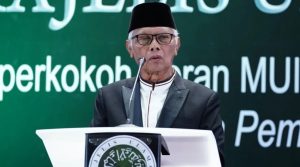




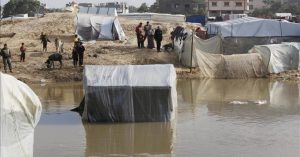
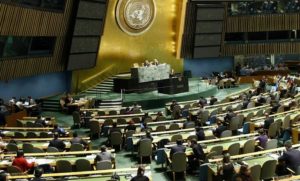
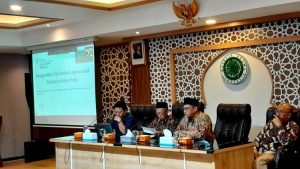

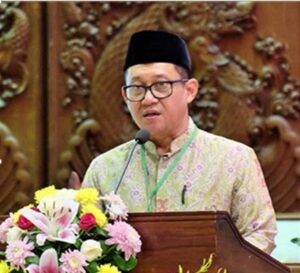
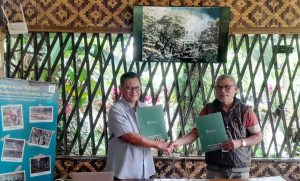
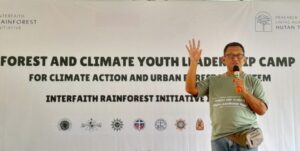












 Mina Indonesia
Mina Indonesia Mina Arabic
Mina Arabic